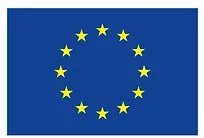
UP2030
Guide cities through the technical and social transition needed to meet their climate-neutral ambitions.
The construction sector is the main sector responsible for the consumption of mineral and non-renewable resources in the European Union, generating 36% of total waste. Most of it occurs during the construction and demolition phases. Various initiatives have attempted to address this problem, however, transport to landfill or recycling into lower quality products is the predominant destination of this waste.
RECONMATIC wants to test and integrate innovative tools and solutions for the management of construction and demolition waste (CDW). The aim is to achieve a sustainable and circular construction sector, with zero waste and low energy consumption strategies. To this end, action will be taken to reduce the generation of CDW and increase its reuse, by means of automated process digitalisation and decision-making tools.
These new tools will improve communication and access to information for all stakeholders, enabling them to prevent the generation of waste and guiding them to reuse or recycle it. Identification and informed knowledge is seen as key to achieving waste recovery and on the road to a zero waste industry by 2050.
The construction sector is the main sector responsible for the consumption of mineral and non-renewable resources in the European Union, generating 36% of total waste. Most of it occurs during the construction and demolition phases. Various initiatives have attempted to address this problem, however, transport to landfill or recycling into lower quality products is the predominant destination of this waste.
RECONMATIC wants to test and integrate innovative tools and solutions for the management of construction and demolition waste (CDW). The aim is to achieve a sustainable and circular construction sector, with zero waste and low energy consumption strategies. To this end, action will be taken to reduce the generation of CDW and increase its reuse, by means of automated process digitalisation and decision-making tools.
These new tools will improve communication and access to information for all stakeholders, enabling them to prevent the generation of waste and guiding them to reuse or recycle it. Identification and informed knowledge is seen as key to achieving waste recovery and on the road to a zero waste industry by 2050.
Development of a tool for the analysis of sustainability and circularity of buildings and infrastructures with a view to increasing circularity and reducing waste generation (definition of circularity and sustainability indicators, contribution to policies and standards).
Use of drones to create digital twins of existing buildings, dissemination of results including organisation of events and creation of didactic material.


Guide cities through the technical and social transition needed to meet their climate-neutral ambitions.